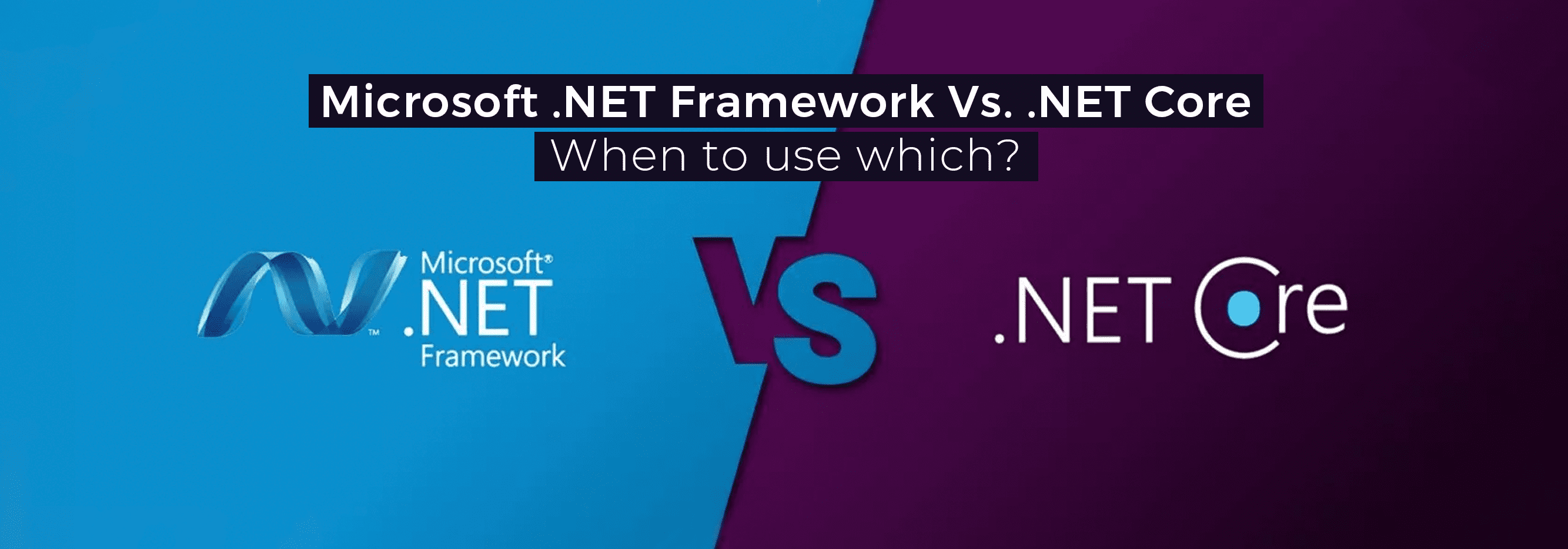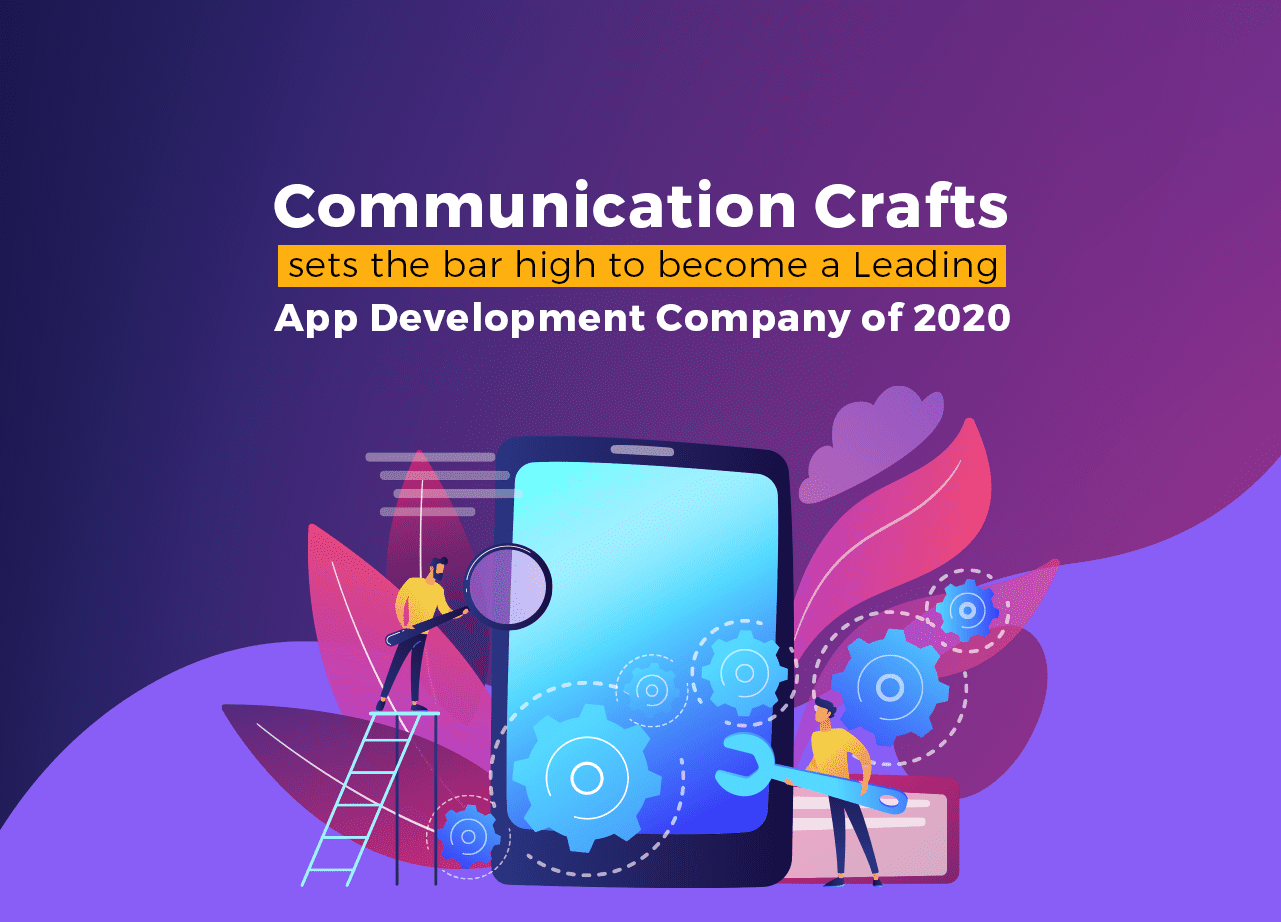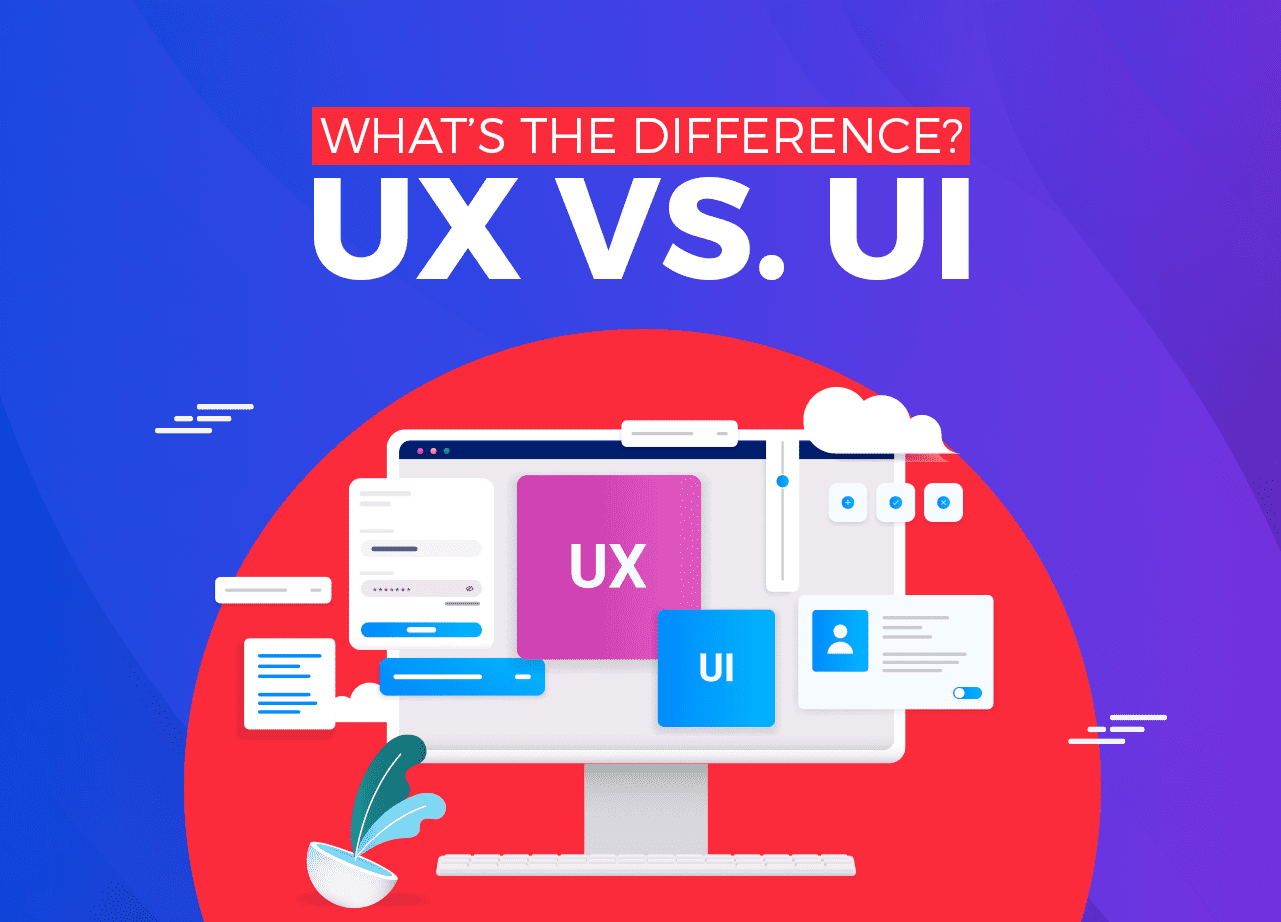It’s a no brainer that programming and web development services form the core of any business – small or big. Developers frequently have to build & deploy various types dynamic web & mobile applications for business in various domains, for which they prefer developing in the
.NET ecosystem.
The .NET ecosystem includes many software development languages, frameworks, tools, like JIT, BCL, C#, GC, VB.NET, ASP.NET, ML.NET, Entity Framework, WinForms, WPF, F#, Xamarin etc. which has helped developers build many applications.
However, the question still remains unanswered- Dotnet Core or .NET Framework, which is the best choice for developing applications?
When building complex applications for complete server-side rendering, .NET provides two technologies to work with:
- .NET Framework
- .NET Core
.NET Framework and .NET Core, both lead the pack in terms of popularity amongst developers. Let us see some key technological aspects that make them unique in their own ways.
Table of Contents
ToggleWhat is the Microsoft .NET Framework?
Helping developers since two decades, Microsoft .NET Framework has found its use extensively in developing Windows applications, Web Services and Desktop apps for Windows.
The two most important components of the .NET Framework are:
- The Common Language Runtime (CLR)
- The Extensive Class Library
Not only is it object-oriented, but also easy to code in multiple languages. But because it is a closed-source, it is compatible with only a single platform. To overcome this, in 2014, Microsoft introduced the .NET Core.
What is the .NET Core?
.NET Core is an open-source framework that helps developers build applications that are compatible with many operating systems like Linux, Apple’s Mac OS, and Windows itself. It also has libraries & multiple language compatibility -C#, F#, Visual Basic for developing dynamic web and mobile apps.
Unique features like microservices, high-performance, multiple APIs & web components, make it an easy-to-use platform for software developers to use. From building websites, mobile apps, Cloud computing, gaming, desktop, web, and AI applications; .NET Core does it all.
Although certain key aspects are key differentiators in both. Let us see which one is an ideal choice in different situations.
When to choose .NET Core
a. Microservices architecture
Microservices – also known as the Microservices architecture – is an architectural style that structures an application as a collection of different services. It can be easily maintained and also reduces deployment time by carrying out automated testing. The loosely coupled architecture, allows teams to work independently, but also makes it easier to deploy complex & secure apps. This is the main reason why many companies tend to use .NET Core as they can release updates quicker, which in turn, enriches the customer’s experience, leading to increased business sales.
b. Performance & Scalability
Apps built on .NET Core perform better than those developed on .NET Framework. Developers can significantly improve the performance of their apps without additional hardware to scale their data. This is made possible because of the automatic recompilation feature that optimizes the apps build with .NET Core.
It is widely suitable for developers working on Cloud platforms who need to scale and deploy their apps frequently. Working with Dotnet Core is efficient because it helps the developers optimize their code, which in turn, helps increase the performance of their apps!
While development in the .NET Framework is redundant in terms of security, compatibility and performance speed.
c. Containers
Containers are an abstraction at the app layer that package code and dependencies together. .NET Core allows multiple containers to run on the same machine and share the OS kernel with other containers. Multiple web apps or services can easily be created and deployed using a Windows Container on Linux, Cloud or a Windows infrastructure itself.
Microsoft’s, Azure Cloud’s Kubernetes Service can easily manage, orchestrate, and scale container-based applications in the Cloud efficiently.
Simply put, the .NET Core is a better choice if you:
- Want to build apps on Windows, Linux, and Mac operating systems.
- Can handle complex features of .NET Core.
- Love programming in an open source environment.
- Want to deploy apps quickly.
When to choose Microsoft .NET Framework?
In cases where developers don’t want to migrate from their existing applications to .NET Core, they can simply write code in the ASP .NET Core for the new web services they wish to add to their existing apps.
However there are certain features that are not available in the Dotnet Core such as:
a. Third-party libraries not available in .NET Core
While .NET Core is widely preferred, developers need to use the .NET Framework if they are working with .NET libraries that aren’t compatible with Dotnet Core. Such is the open source NutGet packager for .NET Framework, which provides the ability to develop apps quickly using its packages.
Applications built on the .NET Framework can take advantage of the in-built class libraries that enable easy operations like file reading/writing, graphic rendering, XML document manipulation, and DB interaction.
b. NET technologies only available in .NET Framework
Some of the .NET Framework technologies aren’t available in Dotnet Core. Although few might be available in later Dotnet Core versions, most .NET technologies are never available. Some technologies only available in .NET are:
- ASP.NET Web Forms applications: For the time being, ASP.NET Core cannot be used for ASP.NET Web Forms.
- ASP.NET Web Pages applications: ASP.NET Web Pages aren’t included in ASP.NET Core and is unlikely to be.
- WCF services implementations: Although the Dotnet Core has WCF client library to consume WCF services; WCF server implementation is only available in .NET Framework for the time being.
- Workflow-related services: Windows Workflow Foundation (WF), Workflow Services (WCF + WF in a single service), and WCF Data are only available in .NET Framework.
There are no plans to bring these .NET technologies to the Dotnet Core. But however, in the future, developers may not want to choose .NET Framework, if Dotnet Core’s newer versions become much better. But for now .NET Framework is a better choice if:
- There’s no requirement of applications to run on different platforms.
- Need a stable environment to work in.
- Already working on an existing app and want to extend its functionalities.
- Don’t want to deal with frequent iterative upgrades to .NET technologies.
- Wanting to develop, client applications for Windows, using Windows Forms or WPF.
.NET is the most profound technology that has helped shape the technology sector as it is today. .NET developers help turn your business idea into actual growth for your business. Hiring a well-established .NET development company is what makes your enterprise’s application work in this digital world!
As a leading mobile and web app Development Company, our team of experts work on the web and mobile app development on a regular basis and provide exquisite results for our customers. With 15+ years of experience and a team of 150+ experts, we at Communication Crafts, have worked on unique and custom mobile & web development projects around the globe. Our expert coders, web & mobile app developers have years of experience working with .NET technologies and work smoothly with both- .NET Framework and .NET Core. We use both extensively to meet all our client’s requirements and ensure complete customer satisfaction. Being innovative by offering diverse and scalable solutions is our forte and we tend to stick by it!
Looking for a .NET Developer for creating mobile & web apps that helps improve your business operations?
Well, you found it!
 Blog Communication Crafts
Blog Communication Crafts





